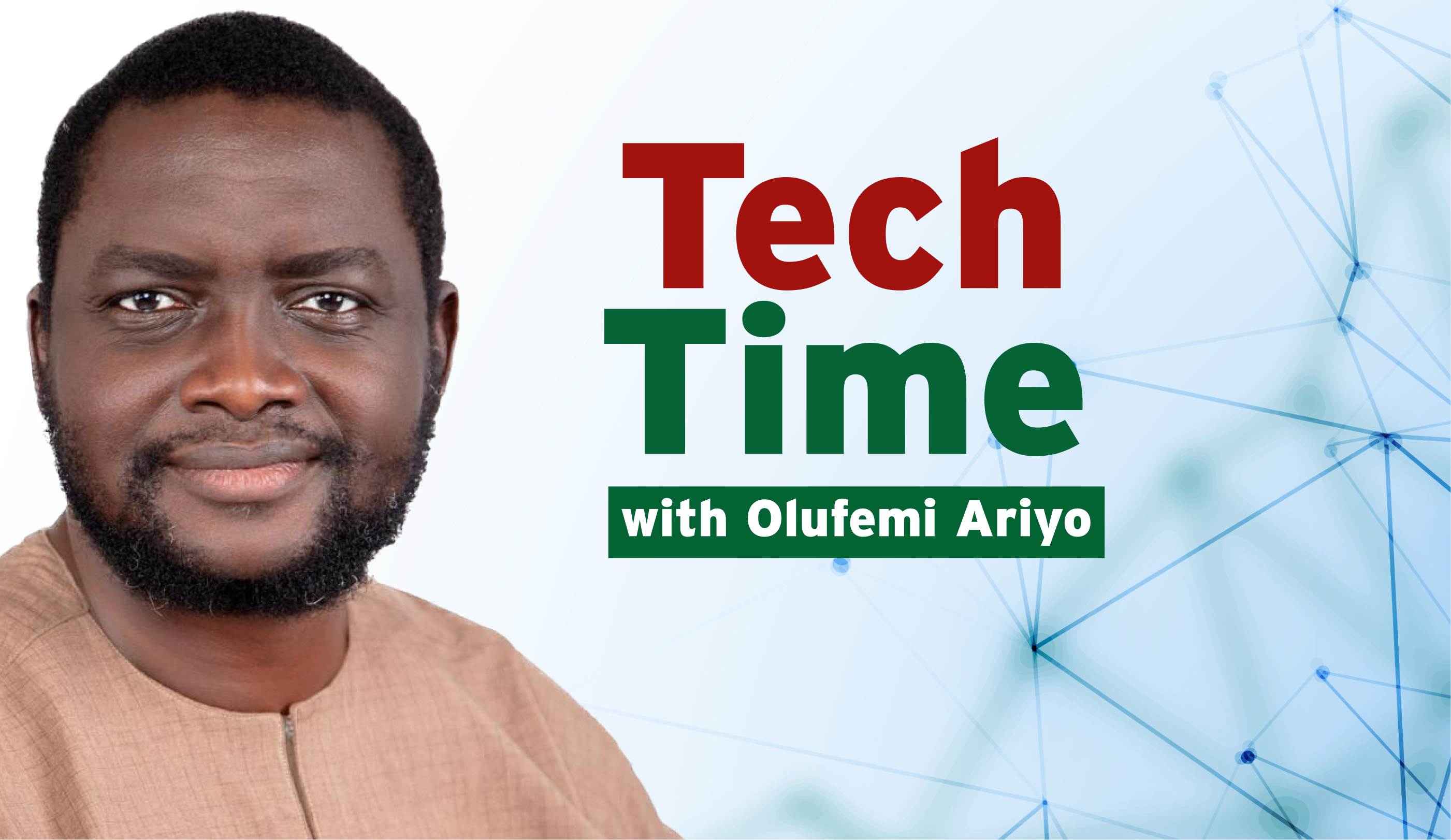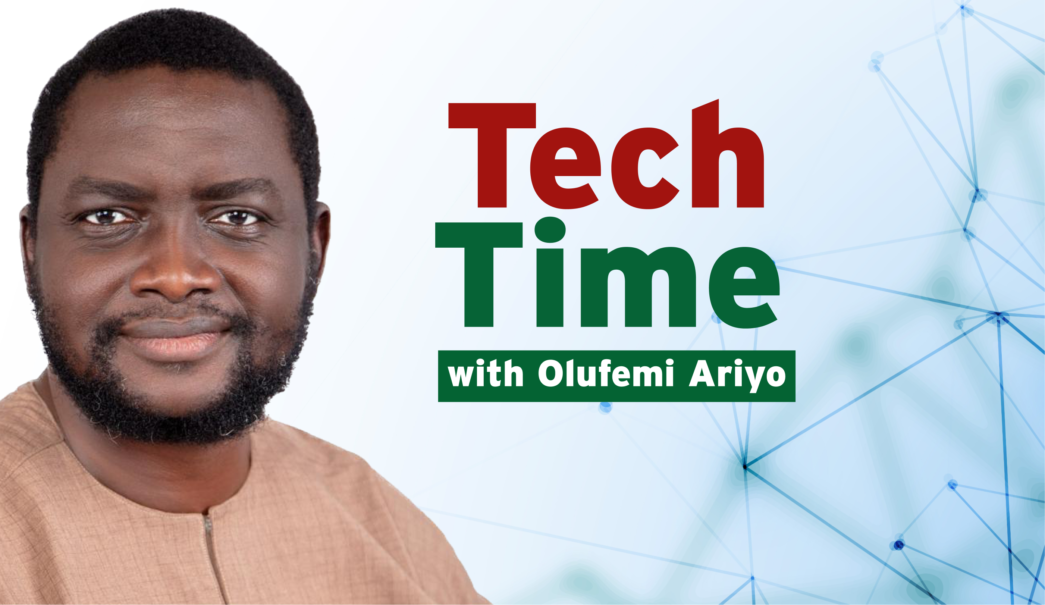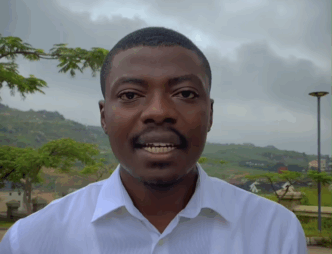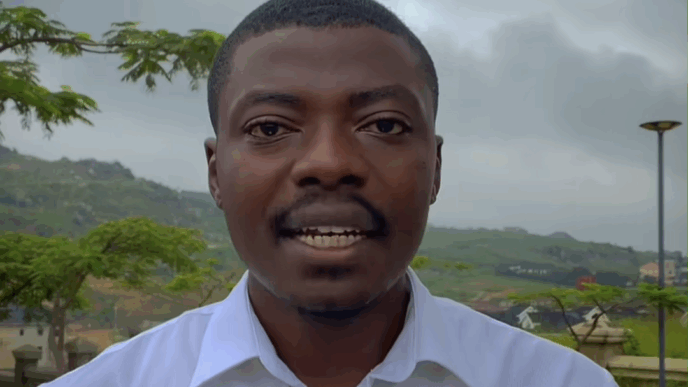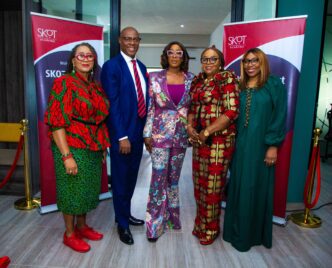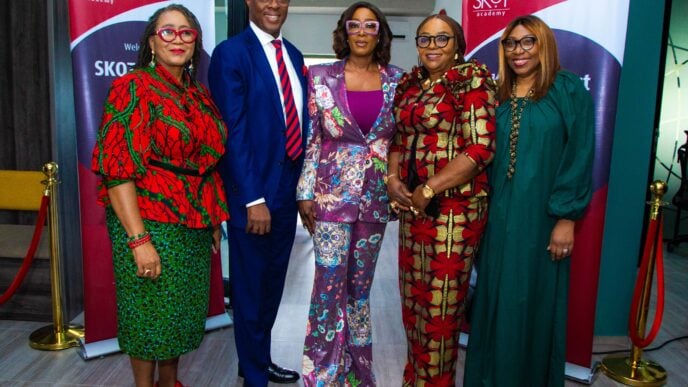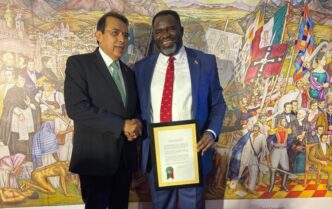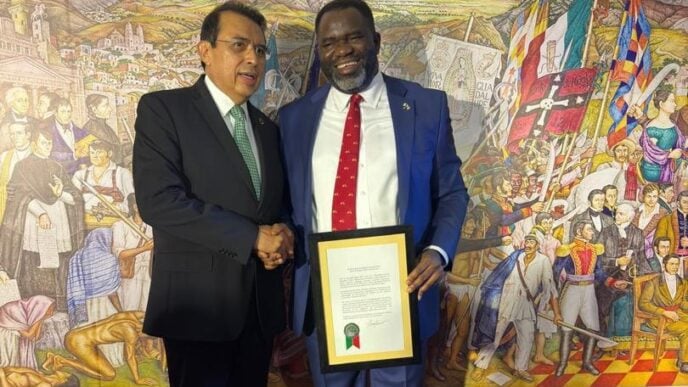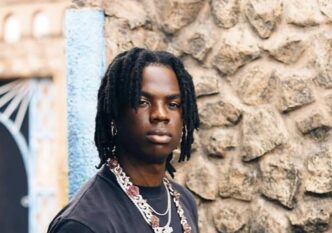For decades, Africa’s development discourse has been shaped by a deep sense of loss — the exodus of skilled professionals, scholars, and creatives who leave the continent in search of better opportunities abroad. This phenomenon, often termed “brain drain,” has been lamented as one of the greatest obstacles to growth: a cycle where Africa invests in talent, only to watch it flourish elsewhere. But what if this narrative is incomplete? What if the African diaspora — now numbering tens of millions across the globe — is not a symptom of failure, but an untapped force for transformation? Today, Africa has a unique opportunity to reimagine its relationship with its global citizenry — not by demanding return, but by enabling contribution. This report explores how the continent can unlock the power of its dispersed talent through a Global African Talent Exchange (GATE) — a bold, strategic framework for connecting skills, knowledge, and innovation across borders to drive inclusive, sustainable development at scale.
1. The Talent Trap and the Opportunity
The African continent has faced a sobering reality: a lot of its brightest, most educated, and most driven individuals have sought opportunity beyond its borders. From doctors in Canada to software engineers in Germany, policy experts in the UK to AI researchers in the US, the African diaspora is a constellation of excellence — just not one orbiting the continent itself. This phenomenon, widely referred to as “brain drain,” has often been framed as a national tragedy — a steady haemorrhaging of talent, ambition, and investment. Governments spend billions educating their citizens, only to see that human capital actualise its potential elsewhere. Families sacrifice for years so their children can reach a horizon that, more often than not, lies outside the motherland. But what if we have been asking the wrong question? Instead of asking how we stop people from leaving, perhaps the more transformative question is: How do we stay connected once they do?
The truth is, the African diaspora is not gone — it is simply dispersed. It has not disappeared — it has repositioned. In fact, today’s globalised and digitised spaces mean that an individual working in Boston or Berlin can contribute meaningfully to innovation in Lagos, Nairobi, or Accra. Geography is no longer destiny. And migration does not have to mean detachment. In this light, the diaspora transforms from a story of loss into one of distributed opportunity — a vast, under-leveraged network of knowledge, capital, influence, and lived experience. These are individuals who not only have expertise, but also context — people who understand both global best practices and local nuances. That’s a rare and powerful combination.
Advertisement
Moreover, many in the diaspora want to give back — but lack clear, trusted, and impactful pathways to do so. The desire is there; the infrastructure is not. So, perhaps the real trap is not brain drain — but failing to activate brain gain. To unlock Africa’s potential, we must move from lamenting exodus to designing engagement. We must shift our focus from the idea of “bringing them back” to plugging them in — wherever they are in the world.
Because the future of Africa is not necessarily in reversing migration. It is in reimagining it as a platform for cross-border co-creation, innovation, and nation-building at a global scale.
2. What We Can Learn from China, India, and Israel
Advertisement
Africa is not the first region to face the challenge of talent emigration — nor will it be the last. But around the world, some nations have managed to turn the tide, transforming their diasporas from symbols of loss into engines of national resurgence. Among the most notable examples are China, India, and Israel — three very different countries that recognised one fundamental truth: Diaspora is not distance. It is distributed potential.
China: Returnees as Catalysts of Economic Rebirth
China’s rapid rise to become the world’s second-largest economy is often attributed to strong industrial policy, state-led investment, and export-driven manufacturing. But beneath the surface of its tech and innovation sectors lies another powerful driver: its returning diaspora. Beginning in the 1990s and accelerating into the 2000s, China actively encouraged its overseas scholars, scientists, and entrepreneurs to come home. These “sea turtles” (as they were affectionately known) brought back more than degrees — they returned with the Silicon Valley mindset, venture capital relationships, and deep technical expertise.
The Chinese government did not just welcome them, it incentivised them:
Advertisement
- Launched initiatives like the Thousand Talents Program to attract global experts.
- Offered startup capital, research grants, and housing allowances.
- Created special economic zones (like Shenzhen) tailored for innovation and foreign-trained entrepreneurs.
Today, many of China’s most iconic companies (Alibaba, Tencent, Baidu, DJI) were founded or shaped by returnees who had studied or worked abroad. Their impact went beyond business; they rewired the national innovation culture.
India: From Brain Drain to Global IT Hub
India faced its own exodus in the 1970s and ’80s, when thousands of its best minds (engineers, doctors, and scientists) left for opportunities in the West. Yet by the 2000s, many of these professionals became the backbone of India’s tech resurgence.
Unlike China, many Indian professionals did not physically return, but they remained deeply connected. The Indian government and private sector leveraged this through:
Advertisement
- Diaspora networks like TiE (The Indus Entrepreneurs) that linked Indian founders globally.
- Partnerships with diaspora investors to fund Indian startups.
- Promotion of IT outsourcing hubs in Bangalore, Hyderabad, and Pune, which allowed Indian talent abroad to collaborate with counterparts at home.
Crucially, the Indian diaspora became ambassadors of credibility, helping India attract global clients and capital. Today, Indian CEOs lead some of the world’s largest tech firms (e.g. Microsoft and Google) yet remain closely connected to India’s entrepreneurial ecosystem.
Israel: A Startup Nation Fuelled by Global Jewish Networks
Advertisement
Israel’s population is small, but its startup ecosystem is mighty — often punching far above its weight. One key reason is its deep integration with the global Jewish diaspora, which has served as a powerful network of influence, funding, and idea exchange.
Looking at New York, London, and Paris, we see Israeli founders have leaned into diaspora connections to:
Advertisement
- Raise venture capital
- Gain early market access
- Recruit global talent and advisors
The Israeli government and civil society have long understood that diaspora is strategic. Programs like Taglit-Birthright build cultural connection, while innovation funds and diaspora fellowships create economic bridges. The result is a country that doesn’t see its global diaspora as external, but as an extension of its national innovation DNA.
Lessons for Africa
Advertisement
From these examples, several key takeaways emerge:
- Diaspora Talent is a Strategic Asset — Not a liability to reverse, but a force to mobilise.
- Governments Must Lead the Coordination — Policies, platforms, and incentives matter.
- Return is Optional; Contribution is Not — Many diaspora Africans can make meaningful impact without ever physically returning.
- Identity is Leverage — Shared culture and commitment can power networks of trust, collaboration, and innovation.
These countries succeeded because they did not treat diaspora engagement as charity, they saw it as strategy. They built infrastructure (both digital and institutional) to enable contribution at scale. It is time Africa does the same.
3. Why Now: The Infrastructure Is in Place
A few decades ago, the idea of harnessing the African diaspora at scale (for knowledge transfer, mentorship, innovation, or governance) was largely a logistical fantasy. Contributing to a project back home meant long flights, high costs, complex visa arrangements, and clunky coordination across time zones and bureaucracies. In short, the barriers were too high, and the tools too limited. But that world no longer exists. Today, the game has fundamentally changed.
Remote Work Is Now the Norm, Not the Exception
The COVID-19 pandemic accelerated a global shift that was already underway: remote collaboration is now a default, not a luxury. Fortune 500 companies, government agencies, startups, and nonprofits all operate across digital spaces. This global familiarity with remote workflows has created a once-unthinkable opportunity: borderless collaboration at scale. An engineer in Nairobi can lead a code review with a developer in Toronto. A product designer in Accra can co-create with a strategist in New York. What once required physical presence can now happen with a good internet connection and a shared calendar.
Trust Infrastructure Has Caught Up
A major historical obstacle to diaspora engagement has been the lack of trust — in systems, payments, contracts, and institutions. But even this has begun to change, thanks to:
- Digital IDs and biometric verification (e.g., NIN, Bank Verification Number in Nigeria)
- Mobile money and global remittance platforms (like Currex, Paystack and Chipper Cash)
- Smart contracts and blockchain tools for accountability, contribution tracking, and secure transactions
Now, a diaspora contributor can be verified, paid, and held accountable, all without setting foot on the continent. This creates the foundation for professionalized diaspora participation — from part-time consulting to project-based contracting to volunteer mentorship.
AI and EdTech Have Democratised Expertise
In the past, contributing to Africa’s development often meant teaching in a classroom, running a workshop, or setting up a clinic — all resource-intensive, location-dependent efforts.
Today, with platforms like:
- Coursera, Udemy, and Cloudnotte — diaspora experts can create or curate learning content
- ChatGPT and other AI tools — knowledge can be transferred, translated, and scaled instantly
- YouTube, LinkedIn, and Substack — insights can reach thousands at low cost
Diaspora professionals no longer have to choose between their careers abroad and their commitment to home. The infrastructure now enables them to do both.
Open Collaboration Tools Have Flattened the Playing Field
Today, collaboration has gone from formal and top-down to fluid and decentralised. Free or low-cost tools like:
- Zoom and Google Meet (for meetings)
- Slack and Discord (for communities)
- GitHub and Notion (for project management)
- Airtable and Trello (for task coordination)
make it easy for diaspora and local talent to work side by side (asynchronously or in real time).
Whether it is building a civic tech platform, mentoring a startup team, or advising on public policy, the tools are no longer the bottleneck.
The Only Limitation Now Is Imagination
With the technological, financial, and logistical barriers largely dismantled, what remains is the creative and strategic leap: how do we build systems that plug Africa’s diaspora into its transformation?
- Not once a year during “homecoming season”
- Not just through remittances and donations
- But through structured, ongoing, and meaningful engagement
The physical infrastructure is here, likewise the digital infrastructure. The question is no longer “can we?” but “will we?”. The challenge before us is not one of possibility, it is one of vision.
4. A Vision for a Global African Talent Corps
Imagine if Africa (continent-wide, or through regional blocs) formally launched a Global African Talent Corps: a next-generation platform designed to channel the skills, expertise, networks, and creativity of Africans in the diaspora directly into nation-building, development innovation, and institution-strengthening.
This not just as a feel-good initiative, or volunteerism; but as a strategic investment in distributed human capital.
The Vision: A Global Talent Exchange for African Progress
At the heart of this vision lies a simple but powerful idea: Africa’s development challenges are not due to a lack of talent, but a lack of connection. What if we created a digital platform that functioned like a “talent exchange” or “global civic cloud,” where:
- Diaspora professionals (such as Silicon Valley engineers, NHS doctors, or World Bank economists) could sign up, verify their expertise, and indicate how they want to contribute.
- Governments, startups, civil society organisations, and universities across Africa could post needs, challenges, and projects.
- A smart matching system would connect expertise to impact opportunities, whether for a short consultation, long-term mentorship, or project-based collaboration.
This wouldn’t be another freelancing platform — it would be mission-driven infrastructure:
A space where skilled Africans can co-build Africa’s future, from wherever they are.
A Corps of Builders, Innovators, and Mentors
The Global African Talent Corps could include:
- Software developers helping governments digitise public services
- Health professionals supporting local clinics with diagnostic reviews or medical education
- UX designers and product managers consulting on African edtech or fintech startups
- Data scientists and researchers assisting ministries with impact evaluation or policy modelling
- Professors and PhDs co-supervising African graduate students
- Creative professionals amplifying African storytelling in global media
This is not a fantasy — versions of this are already happening organically, in silos:
- Diaspora-funded health missions
- Remote mentorship programs like ADPList
- WhatsApp-based consulting support for African startups
- Diaspora engagement offices within African embassies
The difference is scale, structure, and intentionality.
Structured Engagement, Not Short-Term Philanthropy
Too often, diaspora engagement is reduced to remittances or one-off “give back” efforts — generous but often unsustainable. A Talent Corps would reframe this entirely:
- Time-bound engagements (e.g., 5 hours/month, 1 project/quarter)
- Clear deliverables aligned with national development plans or SDGs
- Impact tracking dashboards that measure contribution outcomes, not just participation
- Hybrid funding models — public-private partnerships, diaspora bonds, matched grants
Participation could be incentivised through:
- Recognition (e.g., “National Diaspora Fellows”)
- Tax incentives or exclusive investment opportunities
- Access to local opportunities for co-creation (e.g., startup equity, co-publishing rights)
This makes engagement professional, measurable, and meaningful, beyond emotional.
Imagine the Possibilities
- A Lagos-based AI startup getting regular design critiques from a UX lead in Berlin
- A curriculum reform effort in Malawi co-created with an education policy expert in Atlanta
- A pan-African climate NGO partnering with an environmental scientist at Oxford
- A local government in Ghana using diaspora data scientists to analyse service delivery performance
- Monthly diaspora-led office hours for African student entrepreneurs
These are not hypothetical examples, but the seeds of all of these ideas exist — scattered across initiatives, startups, communities. What is missing is a central orchestrating platform that scales and sustains them.
What It Will Take
- Continental collaboration through the African Union or regional blocs like ECOWAS and SADC
- Government buy-in to integrate diaspora expertise into national strategies
- Tech infrastructure to match, manage, and track talent engagements
- Trust frameworks — legal, ethical, and financial — to ensure accountability and fairness
- Narrative change — moving from “brain drain” guilt to “brain gain” pride
This is about redefining what national service looks like in the 21st century; because not everyone will come home, and they do not have to. However, everyone, no matter where they are, should be able to contribute meaningfully to Africa’s rise.
5. Policy Recommendations: Turning Vision into Infrastructure
A bold vision needs more than enthusiasm — it needs policy architecture to bring it to life. Governments across Africa must recognise that diaspora engagement is not a side project or sentimental outreach — it is a national development strategy. To unlock the full potential of a Global African Talent Corps, here are five practical, high-impact policy interventions that can lay the foundation:
- Diaspora Talent Registry: Building the Database of Distributed Genius
The first step to mobilising a network is knowing who’s in it.
Governments should establish verified, opt-in databases of skilled diaspora professionals — organised by sector, country of residence, availability, and preferred type of engagement (e.g., mentorship, project-based work, startup support).
These registries could:
- Be hosted by national diaspora commissions or embassies
- Use digital ID and LinkedIn integration for credential verification
- Enable periodic matchmaking to government agencies, startups, or NGOs back home
Think of it as an African LinkedIn-with-purpose — not for job-hopping, but for nation-building.
For example, Nigeria’s Diaspora Commission or Kenya’s Ministry of Foreign Affairs could collaborate with regional bodies like the African Union to standardise the framework and scale the database continentally.
- Incentivised Contributions: Rewarding Nation-Building
Patriotism is noble, but policy should also reward participation.
Governments can create a framework of non-monetary and financial incentives to encourage diaspora professionals to commit time and expertise. For instance:
- Tax deductions or credits for diaspora residents who contribute to verified civic or developmental projects (modelled after charitable donation tax breaks)
- National Honours or Public Recognition for outstanding contributors — formalising diaspora service as an esteemed part of citizenship
- Accelerated local investment rights (e.g., land, equity, procurement eligibility) tied to sustained contributions
This moves engagement beyond charity and into the realm of recognised public service.
- Diaspora Bonds and Innovation Funds: Financing the Future
Many diaspora Africans are already sending billions in remittances annually, often to family support. But what if some of that capital could be channeled into strategic national innovation vehicles?
Governments and financial institutions should:
- Launch Diaspora Innovation Bonds — low-risk, high-impact investment instruments tied to specific projects (e.g., smart agriculture, healthtech, or civic tech)
- Support Diaspora-backed VC funds or co-investment platforms, allowing Africans abroad to back startups, R&D hubs, or social enterprises with vetted local partners
- Create tax-exempt or matched-grant schemes for diaspora funding of public goods (e.g., schools, hospitals, energy projects)
These instruments would give diaspora communities a tangible stake in their countries’ futures — not just as contributors, but as co-owners.
- Cross-Border IP Frameworks: Protecting and Sharing Innovation
One major friction point in diaspora-local collaboration is intellectual property (IP).
Who owns the product when a Lagos startup and a Canadian-based Nigerian developer co-create a fintech tool? What happens when a diaspora researcher publishes jointly with a university back home?
African governments and regional legal bodies (e.g., ECOWAS Court, AfCFTA secretariat) must:
- Establish clear legal frameworks for joint IP ownership across borders
- Provide templates for remote collaboration agreements between diaspora and domestic partners
- Harmonise IP protection and enforcement to avoid disputes and encourage innovation
This will ensure that African innovators, whether at home or abroad, can collaborate without fear of exploitation or legal uncertainty.
- Youth Matching and Mentorship Programs: Bridging Generations and Borders
Africa is the youngest continent in the world — and its youth are hungry for mentorship, skills, and global exposure. Governments can introduce formal programs that pair national service participants (like NYSC in Nigeria, or youth corps programs in Ghana, Kenya, etc.) with diaspora mentors in relevant fields.
Features could include:
- A structured one-year engagement with monthly calls, joint projects, or co-learning modules
- Online platforms to facilitate mentor-mentee matching, progress tracking, and impact evaluation
- Certification or career pipeline opportunities for mentees post-service
This creates a bridge between experience and energy, making the diaspora not just a source of capital, but a living classroom for Africa’s next generation.
In Summary: A Policy Toolkit for the Present Moment
| Pillar | Policy Tool | Outcome |
| Talent | Diaspora Talent Registry | Better matchmaking and mobilization |
| Incentives | Tax Credits & National Honors | Increased participation and prestige |
| Capital | Diaspora Bonds & Co-Investment | Unlocking capital for innovation |
| Trust | Cross-Border IP Frameworks | Safer, fairer collaboration |
| Youth | Mentorship Programs | Skills transfer and leadership development |
These are not merely policy recommendations, but structural enablers of a new kind of African development: one where talent doesn’t have to return to contribute, and where diaspora becomes infrastructure.
6. Conclusion: A Call to Build
Africa stands at a historic crossroads, not of crisis, but of unprecedented opportunity. For too long, the dominant narratives about the continent have been shaped by absence: “We lack resources.” “Our best minds have left.” “We are waiting for investment, for aid, for reform.” But what if we flipped the narrative? What if we stopped waiting and started building with what we already have?
The truth is this: Africa’s builders are not missing. They are already here — and abroad.
They are software engineers in Accra, medical professionals in Johannesburg, data scientists in Toronto, creatives in Nairobi, researchers in London, and civic innovators in Lagos and Atlanta.
They are part of a global African citizenry — dispersed, but deeply connected by identity, purpose, and a desire to contribute. What’s missing is not their willingness, but infrastructure, coordination, and vision. The time has come to stop asking, “When will our people come back?” And instead ask a far more powerful question:
“How do we connect and co-create across borders — starting today?”
This Is the Work Before Us
- To build platforms that bridge distance, not reinforce it
- To create systems that value contribution, not just proximity
- To enable meaningful engagement — not as charity, but as strategic nation-building
We must realise that nationhood has outgrown geography. In the digital age, Africa’s future will not be built solely by those within her borders — but by a glocal community: local change-makers and global collaborators, working hand in hand.
This isn’t a sentimental appeal. It is a strategic imperative.
The continent’s population will surpass 2.5 billion by 2050. The stakes are too high for piecemeal thinking, or for leaving talent on the table.
A New Generation Is Ready — Are We?
There is a generation of young Africans — at home and abroad — who are not waiting for permission to build.
They are ready to serve, mentor, invest, build, and scale solutions.
But they need a clear, dignified, and impactful pathway to do so — backed by policy, powered by technology, and supported by institutions that trust and mobilise their potential.
The Future Is Glocally Powered
The future of African development is not just local. It is glocally powered — rooted in local realities, but amplified by global reach. And that future doesn’t begin in five years, or ten. It begins now — with us. Let us build the digital bridges. Let us mobilise the minds. Let us orchestrate the diaspora — not as a scattered people, but as a distributed force for transformation. The builders are ready. The infrastructure is in place. What remains is the will to act. The time to build is now.
Thank you for engaging with this thoughts trail. To continue the conversation, explore collaborations, or access additional resources, feel free to connect through Medium: https://medium.com/@roariyo and LinkedIn: https://www.linkedin.com/in/olufemiariyo/ or send an email to [email protected]
